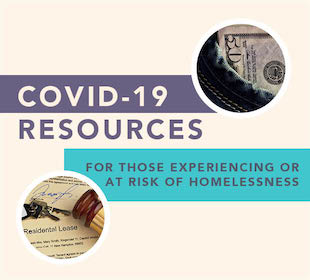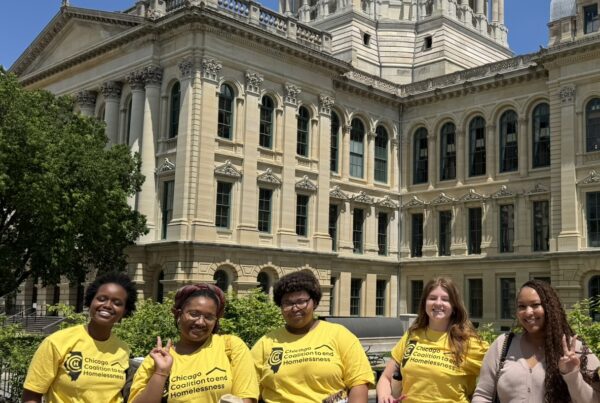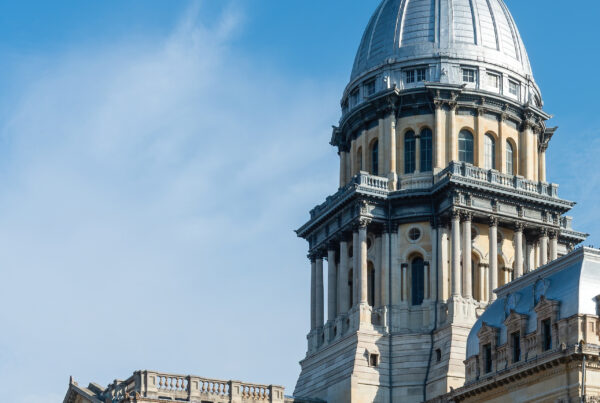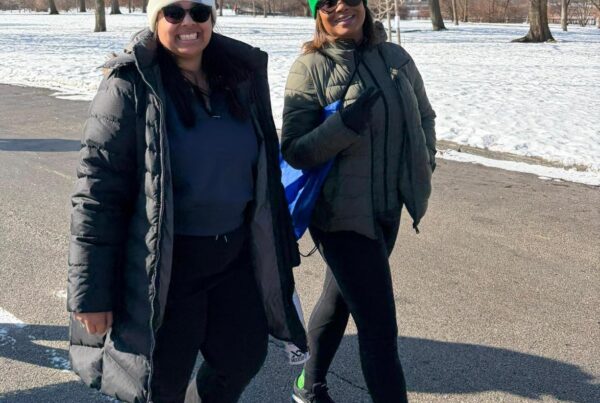 Many community organizations have developed resource guides to help coordinate services for those most impacted by COVID-19. The following resources are intended to supplement and support guides compiled by South Side Weekly, Access Living, Illinois Coalition for Immigrant and Refugee Rights, Shriver National Center on Poverty Law, and other area organizations.
Many community organizations have developed resource guides to help coordinate services for those most impacted by COVID-19. The following resources are intended to supplement and support guides compiled by South Side Weekly, Access Living, Illinois Coalition for Immigrant and Refugee Rights, Shriver National Center on Poverty Law, and other area organizations.
A PDF version of this guide is available here.
If you need help paying rent, call the Homelessness Prevention Call Center. Dial 3–1–1 or (312) 744-5000 and ask for “short-term help.” Callers that are deaf, hard of hearing, or speech impaired should dial (312) 948-6817. State homelessness prevention funds should be available for documented crisis. The Call Center is open Monday–Thursday, 8:30 a.m.–4:30 p.m. The Call Center will refer you to a community organization that manages the funds. If you reside in suburban Cook County, call 1(877)426-6515 for help with basic needs.
Your local Department of Family and Support Services Community Service Center also coordinates rental assistance. They are open Monday–Thursday from 9 a.m.–5 p.m. City residents who need assistance can drop in or schedule an appointment to have an initial assessment to identify their needs.
- Englewood Center, 1140 W. 79th Street, Chicago, IL 60620, (312) 747-0200
- Garfield Center, 10 S. Kedzie Avenue, Chicago, IL 60612, (312) 746-5400
- King Center, 4314 S. Cottage Grove Avenue, Chicago, IL 60653, (312) 747-2300
- North Area, 845 W. Wilson Avenue, Chicago, IL 60640, (312) 744-2580
- South Chicago, 8650 S. Commercial Avenue, Chicago, IL 60617, (312) 747-0500
- Trina Davila, 4312 W. North Avenue, Chicago, IL 60639, (312) 744-2014
If you are living with HIV/AIDS, AIDS Foundation of Chicago (AFC) is providing emergency assistance. If you do not have a case manager or housing advocate, navigator, or technician, call (312) 690-8860 for assistance. Utilize the Chicagoland HIV Resource Coordination Hub for additional information, referrals, and other support to people living with and vulnerable to HIV. The Hub is staffed 9 a.m.–10 p.m., Monday through Saturday, and 9 a.m.–5 p.m. on Sunday. Call the Hub at (844) HUB-4040 or (800)AID-AIDS.
If you have a housing legal matter, call Legal Aid Chicago or Lawyers’ Committee for Better Housing (LCBH). Legal Aid Chicago can be reached by phone at (312) 341-1070 or applying online for housing legal advocacy. The intake line accepts calls weekdays beginning at 8 a.m. Legal Aid Chicago takes a limited number of calls each day, so it is best to call early. They offer a callback option to keep your place in the queue, so you do not have to wait on the phone. All calls are returned the same day. LCBH can be reached at (312) 347-7600. LCBH has closed its office to the public until further notice, but LCBH staff is working remotely, and LCBH is still taking applications by phone.
If you are experiencing homelessness and need shelter, call 3-1-1 to be referred to a shelter. Please note that there is not a clear process for shelter clients to be referred directly to a quarantine/isolation facility from the shelter–the process is typically initiated by emergency rooms.
If you are experiencing a significant change in your income, many federal offices remain open for services over phone.
- Social Security Administration (SSA) offices are closed to the public for in-person services as of March 17, 2020. Use online services or contact local offices by phone. For pre-scheduled, in-office appointments, expect to receive a call from a representative from a private number at the time of the appointment.
- Illinois Department of Employment Security (IDES) remains open. Call IDES at (800) 244-5631 or use online services.
- Illinois Department of Human Services (IDHS) is still offering applications for benefits and requests for assistance for emergency food relief (SNAP), cash assistance (TANF) and Medicaid applications online at Medicaid applications online or by calling the ABE Call Center at (800) 843-6154.
- Illinois Department of Human Services (IDHS) Family Community Resource Centers (FCRCs) remain open with limited staff during this state of emergency. IDHS strongly encourages online and phone applications to limit potential exposure to COVID-19.
- Millions of Americans have already received their Economic Impact (Stimulus) Payments authorized by the Coronavirus Aid, Relief, and Economic Security Act (CARES Act). While the Internal Revenue Service (IRS) continues to calculate and send payments to most eligible individuals, some Americans may have to provide additional information to the IRS to receive their payment. Learn more here.
If you have a legal matter with your income, Legal Aid Chicago can be reached by phone at (312) 341-1070 or applying online. The intake line accepts calls weekdays beginning at 8 a.m. Legal Aid Chicago takes a limited number of calls each day, so it is best to call early. They offer a callback option to keep your place in the queue, so you do not have to wait on the phone. All calls are returned the same day. People experiencing homelessness can contact the Chicago Coalition for the Homeless at (800) 940-1119 for issues with public benefits, education rights, and more. CARPLS can also be reached at (312) 738-9200.
If you need to access a food pantry or prepared meals, the Greater Chicago Food Depository 700 partner agencies and programs remain open–with some exceptions. Find a food program on the Greater Chicago Food Depository website. It is recommended to call a site to confirm program hours and requirements.
Chicago Public Schools are open Monday–Friday, 9 a.m.–1 p.m., to provide meals (breakfast and lunch). All CPS students are eligible. You will pick up the food outside the school building. You will receive 3 days of meals for each young person in the household. If you have trouble getting to a site, call the contact number (773) 553-KIDS or email at familyservices@cps.edu to make a request for food delivery. Call daily to request food delivery.
If you need assistance with your child’s education, Chicago Public Schools offers online enrichment resources. Families can also access hard copy enrichment packets at schools during food distribution hours. You can call CPS at (773) 553-KIDS or email at familyservices@cps.edu for more information. For students who are homeless the Chicago Coalition for the Homeless can assist with any education issue including accessing food, remote learning, and preschool applications. Please call (800) 940-1119.






